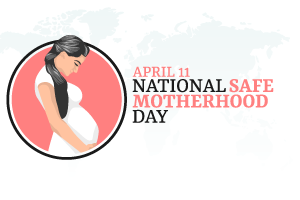

Pockets in the ovary which are filled with fluid on its surface are ovarian cysts. The female reproductive system comprises two ovaries that lie on each side of the uterus. Ova, also known as eggs, are developed in the ovaries and mature in there as well. These eggs or ova are released every month and are also known as ovulation.
Ovarian cysts are not as rare and at some point, every woman must have dealt with them. However, these cysts mostly present little to no discomfort. They are harmless and the majority of them disappear within a few months without treatment.
This does not mean one is not supposed to take them seriously. Ovarian cysts can cause serious damage, particularly in case of those that have been ruptured. It is therefore important for women to get themselves checked and become aware of these cysts and how serious of a problem they can potentially become if ignored.
Ovarian Cyst Types
Even though there are multiple types of cysts, namely Dermoid cysts are like sacs that grow on the ovaries and contain fats, hair and other issues; Cystadenomas cysts are non-cancerous cysts that grow on the outer surface of ovaries; and Endometriosis are tissues that grow inside the uterus[endometrium], but if it develop outside the uterus especially on ovaries, it can give rise to a cyst. But the most common type of cyst found in females is functional cysts.
Functional Ovarian Cyst Types
There are two types of functional cysts:
1. Follicle Cyst
There are times when the egg is not released by the follicle during ovulation and fluid inside the follicle can form the cysts on the ovary.
2. Corpus Luteum Cyst
During menstruation after the egg is released, the follicle sacs generally dissolve themselves. But if the opening of the follicles gets sealed before the sacs get dissolved, then this leads to the formation of a type of cyst known as luteum cyst.
Symptoms of Ovarian Cysts
In general, ovarian cysts do not lead to any symptoms. But there are times when symptoms can appear alongside the growth of cysts. Here is a list of symptoms that women must look out for:
- Bloating of abdomen
- Pain during bowel movements
- Pain in your pelvis before or during your menstrual cycle
- Pain during intercourse
- Pain in your thighs or lower back
- Tender breasts
- Vomiting and nausea
There are also some ovarian cysts symptoms which if you notice may require immediate attention:
- Feeling severe pelvic pain
- Fever
- Feeling dizzy
- Increase in the pace of breathing
Causes of Ovarian Cysts
Many factors heighten the risk of you developing an ovarian cyst, they are:
- Hormonal problems
- Pregnancy
- Endometriosis
- A severe pelvic infection
- Having a history of ovarian cyst
Ovarian Cyst Treatment
If you go to get treatment for your ovarian cysts, then your doctor will either shrink the cyst or remove it in case it grows larger. In most cases, the ovarian cyst goes away on its own. While there are also other treatment options:
1. Birth Control Pills
Your doctor can suggest oral contraception to stop ovulation thereby halting the development of new ones. This is useful if you have recurrent ovarian cysts. As the risk of ovarian cancer is higher in postmenopausal women, it also reduces your risk of ovarian cancer.
2. Laparoscopy
Laparoscopy is a surgical procedure done if your cysts is still minor and to clear you of cancer. In this procedure, the doctor makes a small incision near your navel and then inserts a small instrument inside your abdomen to remove the cyst.
3. Laparotomy
Laparotomy is a surgical procedure that is done to surgically remove your large cyst by making a large incision in your abdomen. To do this, your doctor will conduct a biopsy to determine whether your cyst is cancerous, then a hysterectomy may be done to remove your ovaries and uterus.
Conclusion
It is necessary to get your ovarian cysts checked as some cysts can decrease your fertility if left untreated. It is all the more important to take care and go for regular checkups after your menopause as cyst that develop after menopause may be associated with the risk of developing ovarian cancer.




